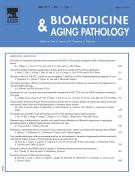Multifaceted cardiac signal transduction mediated by G protein-coupled receptors: Potential target sites where an unambiguous attention is needed for exploring new drugs for cardiovascular disorders - 09/12/11
 , Nanjaian Mahadevan
, Nanjaian MahadevanAbstract |
G protein-coupled receptors (GPCRs) at plasma membrane transduce signals in response to binding of ligands, involving heterotrimeric GTP binding proteins (G proteins). Several endogenous ligands such as epinephrine, norepinephrine, dopamine, endothelin, vasopressin, adenosine, bradykinin, glucagon, and many hormones have been recognized as ligands for GPCRs. The binding of a ligand to GPCR causes allosteric changes in the receptor, resulting in the formation of high affinity ligand-GPCR-G protein complex, which initiates the intracellular signal transduction by modulating numerous effector enzymes and ion channels. The termination of GPCR-mediated signaling takes place by an event of desensitization, which occurs as a result of phosphorylation of the receptor by GPCR kinase and subsequent recruitment of β-arrestin, a multifunctional adapter protein. The β-arrestin, by uncoupling G proteins from the receptor, efficiently terminates GPCRs signal transduction. Interestingly, recent studies revealed that β-arrestin can also turn on some GPCR signaling in a mechanism independently to G protein involvements. The chronic stimulation of certain GPCRs results in various cardiovascular disorders including hypertension, cardiac hypertrophy and progression to heart failure. Understanding the key functional regulation of GPCR-signaling is considerably important in the fundamental process of drug discovery in the area of cardiovascular sciences. In light of this view, the present review critically discussed GPCR-mediated cellular signaling cascade. Moreover, potential molecular target sites pertinent to cardiac GPCR-signaling to develop novel cardiovascular pharmacological interventions have been delineated.
Le texte complet de cet article est disponible en PDF.Keywords : GPCR, G proteins, CaM kinase II, RGS2, β-arrestin, EGFR, β-arrestin-biased ligands
Plan
Vol 1 - N° 4
P. 197-202 - octobre 2011 Retour au numéroBienvenue sur EM-consulte, la référence des professionnels de santé.
L’accès au texte intégral de cet article nécessite un abonnement.
Déjà abonné à cette revue ?

